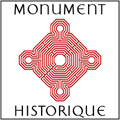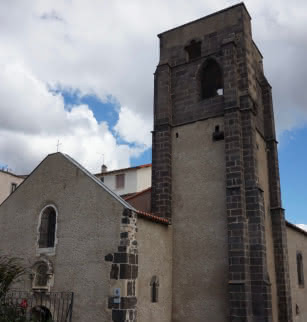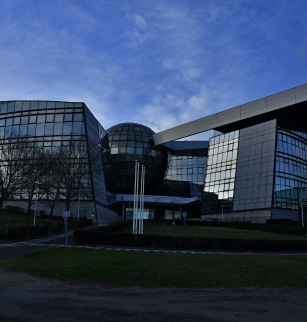Saint-Jean-Marie-Vianney Church

The Église Saint-Jean-Marie-Vianney is an important example of sacred 20th century architecture. With its 1,860 coloured glass slabs, it is representative of the vitality of contemporary religious design in the region.
The Église Saint-Jean-Marie-Vianney was built between 1961 and 1962 to serve the new booming parish of the Vallières neighbourhood. The project was entrusted to architects Albéric Aubert (1895-1971) and Joseph Massota (1925-1989). Albéric Aubert was the designer of modern constructions in the region such as the Sabourin sanatorium (now the École Nationale Supérieure d’Architecture), certified as Architecture Contemporaine Remarquable (remarkable contemporary architecture), and the children’s health centre (Centre médical infantile) at Romagnat.
The church is built entirely from reinforced concrete, with a facing rectangular layout. It is built parallel to the slope, with the north façade then becoming the main façade facing the street. The six-bay front section features four bays in the form of porticoes. The first one, on the right, leads to the main entrance. The other two bays to the left feature the baptismal font chapel closed off by glass slabs.
The walls of the nave are made from concrete lattice. This lattice is formed by alternating horizontal beams and concrete cinder blocks in header layout. The openings thus created are filled in with 1,860 glass slabs that let in coloured light, whose effects vary depending on the time of day. The coffered ceiling is decorated with a large painted cross. The bell, with its bell-tower, announces the building in the neighbourhood. This neighbourhood church is therefore an example of sacred architecture in the region, with its high-profile architects, innovative concepts and remarkable light work.
Opening dates and times
All year round, daily.
Services and equipment
| Equipment : | Parking nearby |
|---|
Prices
- Free of charge.
Labels











